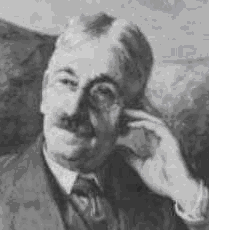John Dewey (1859–1952) was one of the United States’ best known academics, philosophers and public intellectuals, and a key founder of the "progressive education" movement. From humble beginnings in Vermont, he managed to achieve a PhD in philosophy and become a professor at the University of Chicago. It his here that he began experimenting with educational reform, establishing his famous ‘Laboratory School’ in 1896 to develop and test ‘progressive’ methods of teaching. This is where Dewey’s lifelong concerns with the social outcomes of education began, and particularly his interest in the ways in which education could enhance democracy. He moved to Columbia University in 1904, where he was a professor of philosophy, regularly lecturing in the University’s Teachers’ College. He worked at Columbia for the rest of his life, writing a number of books on education and making a major contribution to the American philosophical school of ‘Pragmatism’. By this, Dewey meant that philosophy had to be grounded in the practical conditions of everyday human life, and that human knowledge should be linked to practical social experience. This philosophy underpinned all his educational thinking.

The school environment of desks, blackboards, a small school yard, was supposed to suffice. There was no demand that the teacher should become intimately acquainted with the conditions of the local community, physical, historical, economic, occupational, etc., in order to utilize them as educational resources …
It is no reflection upon the nutritive quality of beefsteak that is not fed to infants. It is not an invidious reflection upon trigonometry that we do not teach it in the first or fifth grade of school. It is not subject per se that is educative or that is conducive to growth. There is no subject that in and of itself, or without regard to the state of growth attained by the learner, such that inherent educational value can be attributed to it. Failure to take into account adaptation to the needs and capacities of individuals was the source of the idea that certain subjects and certain methods are intrinsically cultural or intrinsically good for mental discipline. There is no such thing as educational value in the abstract …
If one attempts to formulate the philosophy of education implicit in the practices of the new education, we may, I think, discover certain common principles amid the variety of progressive schools now existing. To imposition from above is opposed expression and cultivation of individuality; to external discipline is opposed free activity; to learning from texts and teachers, learning from experience; to acquisition of isolated skills and techniques by drill, is opposed acquisition of them as a means of attaining ends which make direct vital appeal; to preparation for a more or less remote future is opposed making the most of the opportunities of present life; to static aims and materials is opposed acquaintance with a changing world …
It is the cardinal precept of the newer school of education that the beginning of instruction shall be made with the experience learners already have; that this experience and the capacities that have been developed during its course provide the starting point for all further learning.
[H]ow shall we … introduce into the school … occupations which exact personal responsibilities and which train the child in relation to the physical realities of life? … [For] such work engages the full spontaneous interest of the children. It keeps them alert and active, instead of passive and receptive; it makes them more useful, more capable, and hence more inclined to he helpful at home; it prepares them to some extent for the practical duties of later life—the girls to be more efficient house managers, if not actually cooks and seamstresses; the boys … for their future vocations.
We must conceive of [schools] … as agencies for bringing home to the child some of the primal necessities of community life … as instrumentalities through which the school itself shall be made a genuine form of active community life, instead of a place set apart in which to learn lessons …
As one enters a busy kitchen in which a group of children are actively engaged in the preparation of food, the psychological difference, the change from more or less passive and inert recipiency and restraint to one of buoyant outgoing energy, is so obvious as fairly to strike one in the face …
[By] the introduction into the school of various forms of active occupation … the entire spirit of the school is renewed. It has a chance to affiliate itself with life, to become the child’s habitat, where he learns through directed learning, instead of being only a place to learn lessons having an abstract and remote reference to some possible living to be done in the future. It gets a chance to be a miniature community, and embryonic society. To do this means to make each one of our schools an embryonic community life, active with the types of occupation that reflect the life of larger society.
Dewey, John. 1938 (1963). Experience and Education. New York: Collier Books. pp. 17–19, 40, 46, 74.
—. 1915 (1956). The School and Society. Chicago: University of Chicago Press. pp. 12, 13, 14, 15, 18, 29.
|| Amazon || WorldCat
